Sabrina C. Shen is a PhD candidate whose research aims to support a more sustainable future through the computational and experimental design of nature-inspired architected materials. Sabrina’s current work, supported by a MathWorks Fellowship, proposes a new paradigm for materials design that uses pre-existing biomass waste streams to build a novel class of architected composites, drawing inspiration from nature and direction from powerful computational methods. By employing tools in bio-fabrication, computing, and theory, she aims to create functional materials that integrate into natural resource cycles in production, use, and disposal, even when scaled to industrial levels. MATLAB computational tools have been integral to her work, and she anticipates contributing open-source models and functions useful to other researchers working at the intersection of advanced experimental and computational methods. Sabrina’s research has exciting potential to advance work in many fields, from structural bio-composites to material design and manufacturing and to move the world toward a more sustainable future.
https://engineering.mit.edu/wp-content/uploads/2023/10/Shen_Sabrina-C_mathworks2023_headshot.jpg
Website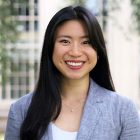
Sabrina C. Shen
Materials Science and Engineering https://engineering.mit.edu/fellows/sabrina-c-shen/YoungIn (Ethan) Shin is a PhD candidate whose research interests lie at the intersection of computational science and renewable energy systems. Specifically, Ethan seeks to advance fundamental knowledge of the atmospheric boundary layer (ABL) and its influence on wind farms, by developing more accurate parameterizations for turbulence in the ABL. His research leverages data assimilation and uncertainty quantifications methods to address two critical challenges in wind energy: the uncertainty in mesoscale and microscale models used for wind flow modeling and the constraints on observations needed for calibrations at the relevant locations for wind farms (~100m above Earth’s surface). A MathWorks Fellowship will support Ethan’s work to build computationally efficient, low-fidelity MATLAB models, characterizing these important environment-energy system interactions for wind farm applications such as wind farm control and wind resource assessment, and to support critical decision-making for energy systems, such as wind farm siting and design.
Ethan’s research has strong potential to further our understanding of renewable energy systems, advance global decarbonization goals, and provide tools to support future research in climate and energy research.
https://engineering.mit.edu/wp-content/uploads/2023/10/Shin_Youngin_Ethan_mathworks2023_headshot.jpg
Website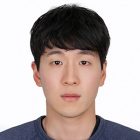
YoungIn (Ethan) Shin
Civil and Environmental Engineering https://engineering.mit.edu/fellows/youngin-ethan-shin/Kaymie Shiozawa is a PhD candidate whose research interests focus on the development of diagnostic, assistive, and rehabilitative technologies to support balance for post-stroke patients and other individuals with compromised balance. Specifically, Kaymie is investigating the neural control strategies of balance across patient populations to inform the design of novel rehabilitation devices that provide continuous care in and out of the clinic. Recently, she developed a biomechanically plausible MATLAB-based simulation and compared the outputs against human quiet standing data to quantify the neural control strategy of unimpaired balance. A MathWorks Fellowship will enable Kaymie to extend this work and gain insight into the differences in control strategies across various populations, such as older adults or stroke survivors. Kaymie’s work offers valuable tools to fellow researchers and has tremendous potential to advance research and innovation in assistive and rehabilitative technologies.
https://engineering.mit.edu/wp-content/uploads/2023/10/Shiozawa-Kaymie_mathworks2023_headshot.jpg
Website
Kaymie Shiozawa
Mechanical Engineering https://engineering.mit.edu/fellows/kaymie-shiozawa/Sami Yamani Douzi Sorkhabi is a PhD candidate whose research explores the flows of dilute polymer solutions. Specifically, Sami is investigating a commercially important phenomenon called polymer drag reduction (PDR), which is used in oil transport and exploited by marine mammals such as dolphins, who secrete a layer of mucin-rich polymer through their skin. Sami has made field-advancing contributions to the emerging area of turbulent fluid physics called elasto-inertial turbulence and has constructed a novel Schlieren imaging system that enables him to explore turbulent mixing flows involving dilute polymer solutions with unprecedented sensitivity. For the first time, he has employed this system to image the mixing of dilute aqueous polymer solutions into a stagnant domain of water. MathWorks tools are foundational to his work. A MathWorks Fellowship will support his continued explorations of PDR and strategies for optimizing drag reduction while minimizing polymer consumption. His research has great potential to contribute to basic science and to advance applications of PDR for marine vehicles and pipelines, with significant energy savings and environmental benefits.
https://engineering.mit.edu/wp-content/uploads/2023/10/Sorkhabi_Sami-Yamani-Douzi_mathworks2023_headshot.jpg
Website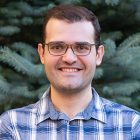
Sami Yamani Douzi Sorkhabi
Mechanical Engineering https://engineering.mit.edu/fellows/sami-yamani-douzi-sorkhabi/Lee Strobel is a PhD candidate whose research interests are focused on numerical modeling of physics problems, in particular those related to gas discharge and atmospheric plasma physics. In his work to date, Lee has made notable contributions to streamer discharge physics, a field of great relevance for nonthermal plasma generation, a phenomenon that appears naturally during lightning and other atmospheric electricity events and is key for applications such as plasma-assisted combustion, plasma medicine, water treatment, and CO2 conversion. With the support of his second MathWorks Fellowship, Lee will continue to develop numerical models of these discharges and extend them to capture longer timescales relevant to chemical processing and self-pulsating behavior under DC conditions. His research holds the potential to offer major advances in the understanding of self-pulsating discharges under DC voltage, which would represent a seminal contribution to the field.
https://engineering.mit.edu/wp-content/uploads/2023/10/Strobel_Lee_mathworks2023_headshot.jpg
Website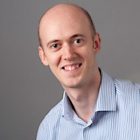
Lee Strobel
Aeronautics and Astronautics https://engineering.mit.edu/fellows/lee-strobel/Rachel Sun is a PhD candidate whose research is focused on the mechanics of solids and structures as they apply to materials, sustainable technology, and medicine. Specifically, she is exploring acoustic metamaterials and reconfigurable architected materials. Supported by a MathWorks Fellowship, Rachel will continue her promising explorations of the acoustic properties of metamaterials at the microscale, with the goal of designing and analyzing an acoustic braced cubic micro-lattice with bandgaps in the MHz frequency range. This work may advance technology such as microscale waveguides or logic switches and potentially lead to advances in microcomputing and medical ultrasound. In addition, Rachel is engaged in a MathWorks seed project on magnetically actuated reconfigurable architected materials. Her goal is to develop a new class of 3D reconfigurable architected materials and mechanisms with microscale features that exhibit magnetic-field-induced reconfiguration and actuation. MATLAB has been instrumental in Rachel’s research. Her work has the potential to yield valuable new technologies to support next-generation medical and computing devices and smart multifunctional materials.
https://engineering.mit.edu/wp-content/uploads/2023/10/Sun_Rachel_mathworks2023_headshot.jpg
Website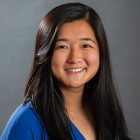
Rachel Sun
Mechanical Engineering https://engineering.mit.edu/fellows/rachel-sun-2/Anantha Narayanan Suresh Babu is a PhD candidate whose research combines computational modeling, uncertainty quantification, Bayesian learning, and scientific machine learning, with applications to sea ice and ocean dynamics. Sea ice is rapidly changing, and submesoscale currents have recently been found to be ubiquitous in the upper ocean. Anantha’s work seeks to broaden our modeling of these complex, nonlinear sea ice and submesoscale dynamics, by melding fundamental physics with limited data. Supported by a MathWorks Fellowship, he is developing probabilistic models and using Bayesian and machine learning to create sea ice rheologies and submesoscale closure models. These new learning methods can discriminate between existing models, detect missing physics, and discover new dynamics formulations utilizing only sparse, indirect, and noisy measurements. Anantha’s work relies on his custom MATLAB framework and could yield useful numerical tools and schemes for fellow researchers. His work has the potential to impact both ocean and data sciences. Ultimately, his results could be valuable for climate modeling, environmental monitoring and forecasting, marine ecosystem protection, resource management, maritime transport, and policy and decision-making for the future of our planet.
https://engineering.mit.edu/wp-content/uploads/2023/10/Babu_Anantha-Narayanan-Suresh_mathworks2023_headshot.jpg
Website
Anantha Narayanan Suresh Babu
Mechanical Engineering https://engineering.mit.edu/fellows/anantha-narayanan-suresh-babu/Hao Tang is a PhD candidate whose research explores the use of computational tools to simulate physical systems and provide microscopic insights into the underlying physics and materials design strategy. As a MathWorks Fellow, Hao will advance his highly promising research along four primary lines of inquiry. First, he will study quantum algorithms for machine learning problems where the training dataset is distributed in remote devices. Second, he will conduct quantum transport simulation and phase-field simulation to explore the underlying physics of recently developed denoising technology. Third, he will continue to work in spin defects simulation, which has yielded a novel computational method to calculate the temperature dependence of transition energies in solid spin qubits. Finally, he aims to develop a reinforcement learning-based algorithm for long-timescale atomistic simulation. MATLAB plays a significant role in all aspects of Hao’s work. Through his research, Hao is contributing to the development of advanced tools to simulate physical systems, with the potential for a major impact in the field of computational materials science.
https://engineering.mit.edu/wp-content/uploads/2023/10/Tang_Hao_mathworks2023_headshot.jpg
Website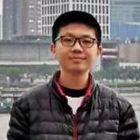
Hao Tang
Materials Science and Engineering https://engineering.mit.edu/fellows/hao-tang/Sunbochen Tang is a PhD student whose research interests are in control theory, optimization, and machine learning. Specifically, Sunbochen is developing novel learning-based approaches to control complex dynamical systems with safety guarantees. With the support of a MathWorks Fellowship and drawing on MATLAB and Simulink, he will explore data-driven control methods for safety-critical autonomous systems with uncertain dynamics. The primary objective of his work is to develop efficient control-oriented meta-learning algorithms for systems to adapt to unknown disturbances in complex environments online. Ultimately, Sunbochen aims to develop open-source modular MATLAB scripts and Simulink models to test such learning-based control algorithms in a realistic simulation environment, thereby developing a deeper understanding of their benefits and potential limitations. His research has the potential to improve the data efficiency and safety guarantees of current learning-based algorithms by introducing control-theoretic designs and advancing the development of trustworthy autonomous systems in general.
https://engineering.mit.edu/wp-content/uploads/2023/10/Tang_Sunbochen_mathworks2023_headshot.jpg
Website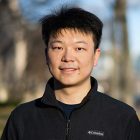
Sunbochen Tang
Aeronautics and Astronautics https://engineering.mit.edu/fellows/sunbochen-tang/Wenhui Tang is a PhD candidate whose research interests lie in understanding complex biological systems using physical and mechanical tools. Specifically, her research focuses on spatiotemporal cellular behaviors in three-dimensional multicellular systems, such as cell migration, packing, and cell-matrix interaction during development and maturation. Wenhui has made extensive use of MathWorks tools in several path-breaking projects exploring cell behaviors, including investigating the role of curvature on collective cell migration and packing in an in vitro model of human lung alveolospheres and their mechanical regulation during development. Her third MathWorks Fellowship will enable her to extend ongoing research, investigating dynamic pattern formation in developing epithelia and human breast cancer models. Wenhui has already contributed valuable new knowledge and tools to her field, and her research has great potential to advance our understanding of cell behaviors and biological systems, with important implications for human health.
https://engineering.mit.edu/wp-content/uploads/2023/10/Tang_Wenhui_mathworks2023_headshot.jpg
Website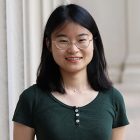
Wenhui Tang
Mechanical Engineering https://engineering.mit.edu/fellows/wenhui-tang-3/Tony Tohme is a PhD candidate whose research interests focus on reliable and interpretable machine learning, with a particular emphasis on white-box modeling and symbolic regression. While supported by his first MathWorks Fellowship, Tony conducted promising work in probabilistic machine learning to improve predictive uncertainty estimation in neural networks for supervised learning tasks. His second MathWorks Fellowship will enable him to pursue several innovative projects in machine learning with the goal of developing fast, accurate, and interpretable white-box modeling techniques. These include exploring the possibility of incorporating symbolic regression in density estimation techniques, invertible maps, and variance reduction methods. MATLAB is a vital tool in Tony’s research, which has the potential to contribute to more reliable and interpretable algorithms and significantly advance state-of-the-art machine learning technology.
https://engineering.mit.edu/wp-content/uploads/2023/10/Tohme_Tony_mathworks2023_headshot.jpg
Website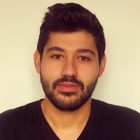
Tony Tohme
Mechanical Engineering https://engineering.mit.edu/fellows/tony-tohme-2/Thomas Varnish is a PhD candidate whose research interests are focused on the study of plasma physics, which underpins fascinating astrophysical phenomena such as solar flares, black hole accretion disks, and pulsar magnetospheres. Specifically, Thomas studies a process called magnetic reconnection, an explosive reconfiguration of magnetic field topology in plasma that rapidly dissipates magnetic energy by heating and accelerating it. Supported by a MathWorks Fellowship, Thomas will investigate this phenomenon experimentally and continue his work on PUFFIN, a new pulsed-power facility at the Plasma Science and Fusion Center that could provide unique capabilities for laboratory astrophysics. As part of his work, Thomas is exploring the use of MathWorks products such as Simulink and MATLAB to carry out a range of tasks key to supporting research on PUFFIN, including circuit modeling, systems control, and data analysis. Through his individual research on other facilities and his work on PUFFIN, Thomas is making important contributions to the field of plasma physics, and helping to create a state-of-the-art facility that could support and inspire cutting-edge research in experimental astrophysics.
https://engineering.mit.edu/wp-content/uploads/2023/10/Varnish_Thomas_mathworks2023_headshot.jpg
Website
Thomas Varnish
Nuclear Science and Engineering https://engineering.mit.edu/fellows/thomas-varnish/Eric Kevin Wang is a PhD candidate whose robotics research focuses on real-time reactive control to advance efficient and natural, autonomous manipulation. Specifically, Eric seeks to develop efficient ways for robots to transport objects through dynamic, nonprehensile movement and remove the inefficiencies of traditional quasistatic models of manipulation. This involves creating new techniques for geometric modeling of dynamic frictional interaction that are amenable to fast trajectory optimization and robust control. With the support of his second MathWorks Fellowship, Eric will continue his efforts to create a new robot arm that is more dynamic and has lower control latency than currently available hardware and develop simulations to demonstrate feedforward acceleration control from an inertial model that can enable these dynamic tasks. MATLAB tools are a core component of this research. By improving robots’ ability to successfully perform difficult dynamic transport tasks, such as throwing, catching, and inverting an object, all while keeping it safely within grasp, Eric’s research has the potential to support major advances in robotics, with broad benefits for industry and the scientific community.
https://engineering.mit.edu/wp-content/uploads/2023/10/Wang_Eric-Kevin_mathworks2023_headshot.jpg
Website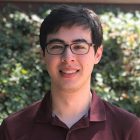
Eric Kevin Wang
Mechanical Engineering https://engineering.mit.edu/fellows/eric-kevin-wang-2/Qiuyuan Wang is a PhD candidate whose research interests are in spintronics, a rapidly growing field that leverages the electron’s spin degree of freedom and the associated magnetic moment and offers tremendous potential to improve power efficiency and performance in storage and computing technologies. With the support of a MathWorks Fellowship, Qiuyuan is investigating multiple dimensions of spintronics, including emergent topological materials as new building blocks for spintronic devices and the design of energy-saving computing paradigms utilizing stochastic magnetic tunnel junctions. MathWorks tools such as MATLAB and Simulink have been invaluable in enabling Qiuyuan to study a variety of spin dynamics problems, design and evaluate experiments, and build innovative devices like a stochastic computing hardware accelerator. He plans to share resources developed in the course of his research to inspire others working in the field of post-CMOS computing. Qiuyuan’s work at the leading edge of this field could help bring about pioneering solutions for next-generation electronics.
https://engineering.mit.edu/wp-content/uploads/2023/10/Wang_Qiuyuan_mathworks2023_headshot.jpg
Website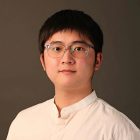
Qiuyuan Wang
Electrical Engineering and Computer Science https://engineering.mit.edu/fellows/qiuyuan-wang/Reimar Weissbach is a PhD and MBA candidate whose research integrates advanced computation, manufacturing, and management science. With the support of his first MathWorks Fellowship, Reimar conducted innovative research in metal additive manufacturing (AM) processes and developed novel spreading strategies for fine and highly cohesive metal powders. His second MathWorks Fellowship will enable him to expand this work to the laser melting process in metal AM to improve the throughput and quality of laser powder bed fusion. The next phases of his work will focus on creating novel processing regimes using thick powder layers and testing his hypothesis that spreading fine/cohesive powders in dense, relatively thick layers can be exploited as an inherent means of process stabilization to increase throughput without sacrificing quality. Reimar’s research holds significant potential to accelerate the adoption of AM by industry by increasing production rates and decreasing costs, all while improving geometrical resolution. His work is also yielding numerous MATLAB-based tools of value to the research community and manufacturing industry.
https://engineering.mit.edu/wp-content/uploads/2023/10/Weissbach-Reimar_mathworks2023_headshot.jpg
Website
Reimar Weissbach
Mechanical Engineering https://engineering.mit.edu/fellows/reimar-weissbach-2/Christopher Wink is a PhD candidate whose research interests are aimed at advancing the science of inertial confinement fusion (ICF) toward the realization of laser-driven fusion as an unlimited, safe, and clean energy source. Specifically, Chris is working on designing and implementing the next-generation neutron spectrometer for ICF applications at both the National Ignition Facility at Lawrence Livermore National Laboratory and the OMEGA Laser Facility in the Laboratory for Laser Energetics at the University of Rochester. This spectrometer, called the Magnetic Recoil Spectrometer Upgrade (MRSu), is being designed for more accurate measurements of the neutron spectrum from which the yield, ion temperature, and areal density of an ICF implosion could be determined at unprecedented accuracy. With the support of a MathWorks Fellowship, Chris will continue to design and implement the MRSu on OMEGA and the NIF, efforts that heavily rely on MathWorks tools. This work offers vastly improved performance over the current detector suite and could have a significant impact on the mainline ICF programs at OMEGA and the NIF. His work is already yielding important new tools and knowledge in the field of nuclear energy and holds significant potential to advance the goal of clean, safe, abundant fusion energy in the future.
https://engineering.mit.edu/wp-content/uploads/2023/10/WInk-Christopher_mathworks2023_headshot.jpg
Website
Christopher Wink
Nuclear Science and Engineering https://engineering.mit.edu/fellows/christopher-wink/Oliver Xie is a PhD candidate whose research interests are focused on block copolymers and the unique properties arising from their self-assembled morphologies. With the support of his second MathWorks Fellowship, Oliver will build on his previous research achievements using MATLAB tools to explore polymer sequence morphology relationships. His objectives include a novel reinterpretation of polymer sequences as not simply a series of chemicals but rather as both a signal with a spectrum, and an image after undergoing functional transforms. He is also investigating how different length scales of interaction in the sequence function can be better represented and manipulated in the Fourier representation. By combining the results of the perturbative study with an inverse-design optimization algorithm using forward or reverse mode automatic differentiation, sequences may be designed based on a desired morphology. Oliver’s work is offering exciting new knowledge and innovative approaches with major impacts on his field. His work has great potential to advance polymer science, and yield valuable tools and insights to power future research.
https://engineering.mit.edu/wp-content/uploads/2023/10/Xie_Oliver_mathworks2023_headshot.jpg
Website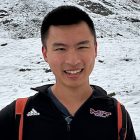
Oliver Xie
Chemical Engineering https://engineering.mit.edu/fellows/oliver-xie-2/Duo Xu is a PhD candidate whose research focuses on the development of multifunctional, composite materials for space applications. Specifically, he seeks to create materials that meet the performance requirements of this extreme environment, including shielding from ionizing radiation, thermal and mechanical stability under extreme vibrations, and large temperature swings. With the support of a MathWorks Fellowship he will advance on-going research to innovate new materials with the required properties, and fabricate them via additive manufacturing techniques. MathWorks tools support many aspects of this work, including his construction of a computational model to optimize material properties and predict device performance under realistic conditions. Duo’s research has the potential to further critical new technologies for spaceflight and yield valuable open-source tools to model light-matter interactions and heat transport through materials in space conditions. His cutting-edge work has great prospective benefits to industry, the research community, and human space exploration.
https://engineering.mit.edu/wp-content/uploads/2023/10/Xu_Duo_mathworks2023_headshot.jpg
Website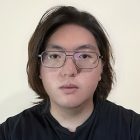
Duo Xu
Mechanical Engineering https://engineering.mit.edu/fellows/duo-xu/Kathleen Yang is a PhD candidate whose research interests lie at the intersection of wireless communications and signal processing. In previous work, Kathleen developed an impulsive modulation scheme that encodes information in both time and frequency, as well as a corresponding compressed sensing receiver. A MathWorks Fellowship will support Kathleen’s current work on GRAND-assisted multi-user detection, which is a technique that combines users’ symbols and codebooks to achieve better detection and error correction. She relies on MathWorks tools for many core aspects of her research, such as utilizing vectorized code to improve the efficiency of her simulations for physical layer and multiple access channel communications. In particular, she heavily uses modulation and error correction-related functions. Kathleen’s research holds exciting potential to advance the field of wireless communication as a whole and to yield tools and strategies that will power the work of many other researchers.
https://engineering.mit.edu/wp-content/uploads/2023/10/Yang_Kathleen_mathworks2023_headshot.jpg
Website
Kathleen Yang
Electrical Engineering and Computer Science https://engineering.mit.edu/fellows/kathleen-yang/Matthew Yeung is a PhD candidate whose research explores interactions between light and nanostructures for both fundamental research and the development of novel optoelectronic technologies. The focus of his current work, supported by a MathWorks Fellowship, is the development of nanostructured devices that can interact with and measure light fields with sub-femtosecond resolution. These devices enable a critical new tool in visible to near-infrared optical metrology: a sampling oscilloscope for light waves that could offer a fresh time-domain perspective on how light interacts with materials. Matthew’s work has a large number of potential applications, including creating more efficient solar cells, understanding the fundamental energy transfer mechanisms that enable photosynthesis, and characterizing materials with unprecedented sensitivity. MATLAB has been vital in Matthew’s device design, experiment development, and instrumentation interfacing, and he looks forward to sharing the resulting tools with the MathWorks community. His work has the potential to help usher in revolutionary advances in light-based technologies.
https://engineering.mit.edu/wp-content/uploads/2023/10/Yeung_Matthew_mathworks2023_headshot.jpg
Website